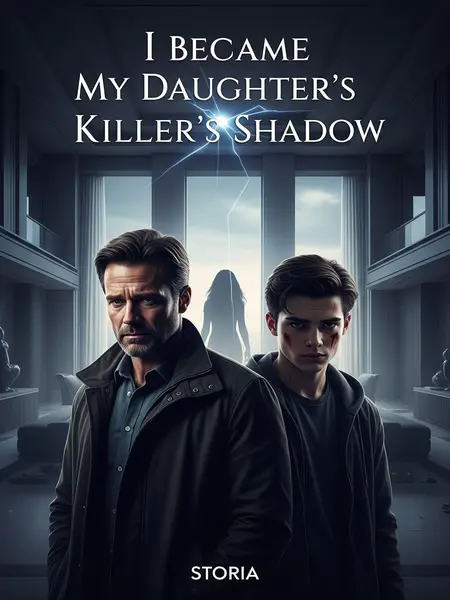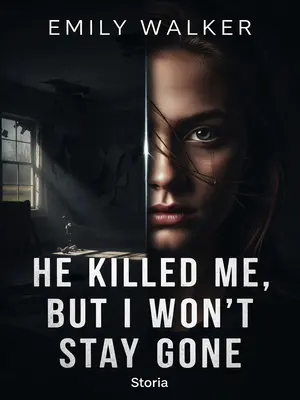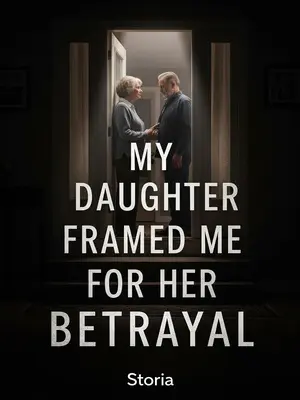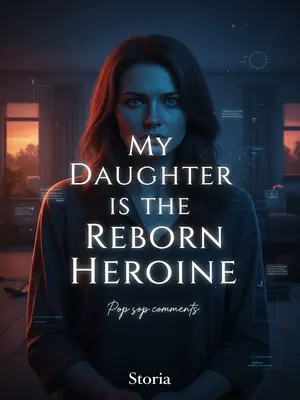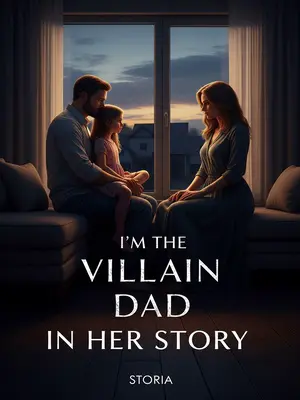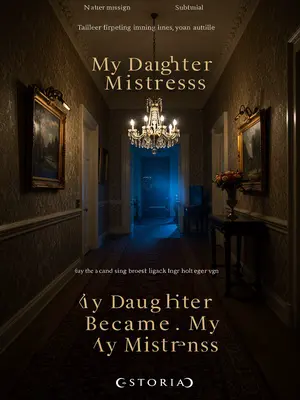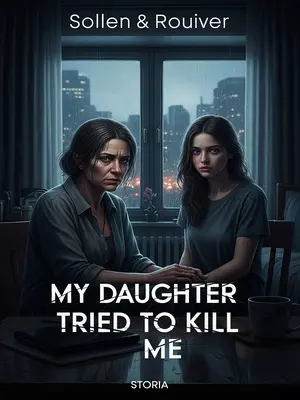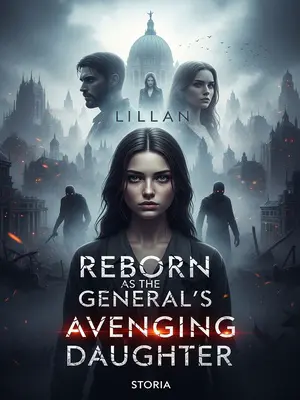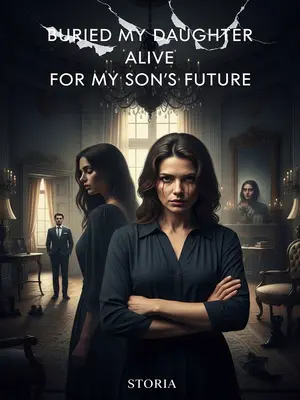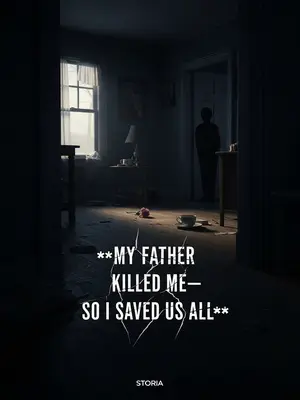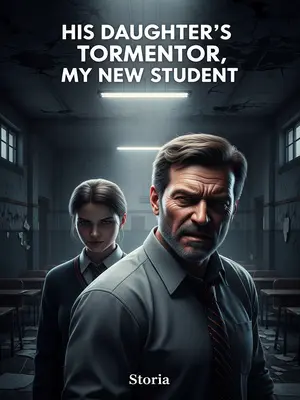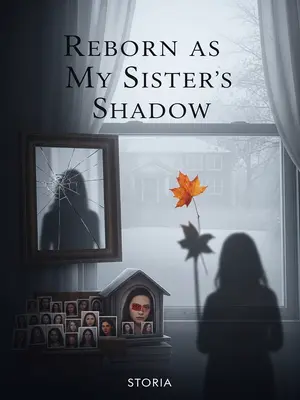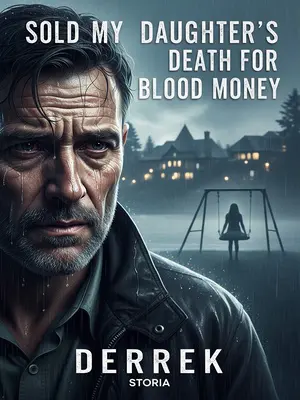Chapter 1: The Day Sadie Was Lost
The day Sadie came home and told us someone was following her, everything changed.
Those words still echo in the house. They linger between the faded walls, blending with the soft ticking of the old clock in our front hallway. I can still hear the way Sadie’s voice trembled—just a little—as she tried to sound brave, her backpack hanging off one small shoulder. Even now, whenever the front door creaks open, for just a second, I expect to see her there, scuffing her sneakers on the mat.
My wife started watching near the elementary school for a few days, but she never saw anything out of the ordinary.
Mariah would leave early, clutching her coffee, parking our old Honda a block from the school. She’d pretend to scroll her phone, but her eyes were always scanning the faces of parents and kids. She’d text me updates—just little check-ins. Sometimes an emoji. Sometimes a nervous joke. Once in a while, a string of dots. The teachers waved at her, the crossing guard gave a nod, and still, nothing seemed off. Nothing at all. I remember thinking, Maybe we’re just being paranoid.
We both thought it was just a kid’s imagination—
We even laughed about it, quietly, over dinner. Reminded ourselves that Sadie always had a wild streak of stories. That was just Sadie. She was the kind of kid who saw shapes in the clouds and monsters in the closet. Still, there was a knot in my stomach I couldn’t quite untie.
Until three days later, when our daughter’s body was found in the neighborhood.
The world seemed to tilt off its axis. I couldn’t move. I couldn’t breathe. I remember the flashing lights, the distant wail of sirens, neighbors huddled in shocked little clusters on their lawns. The sky was a flat, washed-out gray. Time seemed to freeze, then shatter. Everything wrong, all at once.
The coroner said Sadie died of suffocation, with multiple bruises and fractures on her body.
I heard the words, but they didn’t make sense. My mind kept rejecting it, as if I could force it not to be true. The words were so clinical, so cold—too cold for someone as warm and alive as Sadie. My stomach twisted. My hands went numb.
I stood in the morgue, staring at my daughter’s pale little face, thinking of what she’d said three days earlier after coming home from school.
The fluorescent lights buzzed overhead, painting everything in harsh, sterile blue. I reached out, wanting to touch her cheek, to tuck a stray curl behind her ear, but my hand froze midair. The memory of her voice—so small, so insistent—rang in my ears. God, I wish I’d listened.
“Dad, someone followed me today.” Six-year-old Sadie tossed her backpack onto the couch, pouting.
Her cheeks were still pink from the cold, her hair a little tangled. She flopped onto the cushions and looked up at me with those big, earnest eyes. I barely looked up.
At the time, I was rushing to finish a design draft and replied distractedly, not even looking up: “Maybe it was just a classmate going the same way.”
My voice was flat, too quick. I told myself I’d listen better after this last email, after dinner, after—well, after. If only. The guilt stings sharper every time I think of it.
“No,” Sadie shook her head. “He was wearing a blue jacket and kept following behind me. When I walked faster, he walked faster. When I slowed down, he slowed down.”
She spoke with the stubborn certainty of a child who knows she’s not being believed. Her hands fiddled with the zipper of her backpack, her gaze fixed on the rug. I should have looked closer. I should have asked more.
My wife, Mariah, poked her head out from the kitchen. “What kind of person?”
Mariah’s voice was gentle, but there was a note of worry underneath. She wiped her hands on a dish towel as she came closer. I could smell the garlic on her hands, the tomato sauce simmering behind her. The kitchen felt suddenly far away.
“A boy,” Sadie tilted her head, thinking for a moment.
She scrunched up her nose, searching her memory. Her fingers twisted together, anxious.
Mariah frowned, put down her spatula, and squatted beside Sadie. “Tell Mommy, what did he look like?”
Mariah’s eyes searched Sadie’s face, soft but serious. She brushed a lock of hair behind Sadie’s ear, crouching to meet her at eye level. The room felt smaller, quieter.
“I didn’t see clearly,” Sadie fiddled with her fingers. “He was wearing a hat and a mask.”
Her voice dropped to a whisper, as if saying it too loud might make it real. The world outside felt suddenly colder, the windows reflecting nothing but gray.
The next day, Mariah took the day off and, without telling Sadie, followed her after school. She called me at work: “I didn’t see anything. Sadie walked home just fine by herself.”
I could hear the relief in her voice, but also the exhaustion. The city’s noise buzzed in the background. I told her to come home, that she’d done enough, that maybe Sadie really was just spooked by a shadow.
On the third day, Mariah went again.
She packed a thermos of coffee and a granola bar, determined to catch anything out of the ordinary. She watched every face, every car, every slow-moving stranger. But when she came home, her voice was lighter.
“Still nothing,” she said when she got home that night. “Maybe the kid really does just have too much imagination.”
She laughed a little, rubbing her temples. I poured her a glass of wine, and for the first time in days, we relaxed. The air felt lighter, the house warmer. We even joked about banning detective shows from the TV for a while.
We both breathed a sigh of relief, even laughing about whether we should stop Sadie from watching so many detective cartoons.
We let ourselves believe it was over, that the world was still safe. I hugged Sadie a little tighter that night, tucking her in with her favorite stuffed bunny. I promised myself I’d be more present, more careful. I never imagined how little time we had left.
Until that evening, when I got a call from the police—and my phone slipped from my hand.
The ring was shrill, slicing through the quiet. My hand shook so badly I almost dropped it. Mariah’s face went pale as I listened. The phone clattered to the hardwood floor, and for a moment, the world just… stopped.
Sadie was lying in the bushes. She was wearing her favorite pink dress. Mariah had just bought it for her yesterday, as an early birthday present. Her seventh birthday wasn’t until next Wednesday.
The dress was smeared with dirt and grass stains, the skirt torn at the hem. I remembered how excited she’d been, twirling in front of the mirror, asking if she could wear it every day until her birthday. Now, the sight of that dress would haunt me forever.
Her little face was bluish-gray, with a trace of dried blood at the corner of her mouth.
I wanted to wipe it away, to clean her up, to make her look like herself again. But all I could do was stand there, frozen, as the paramedics covered her with a sheet. The world was suddenly too loud and too quiet all at once.
A man in a Yankees cap squatted beside the body, pointing at the bruises on Sadie’s neck. Detective Captain Marcus Caldwell. “The kid fought back. There’s skin tissue under her fingernails.”
Marcus’s voice was steady, but his eyes were tired. His badge was clipped to his belt. He looked at me, and for a moment, I saw a flicker of something—maybe pity, maybe anger.
Mariah fainted on the spot. I knelt beside Sadie, wanting to touch her face, but the coroner stopped me.
My knees hit the ground hard. I reached for Sadie, but gloved hands blocked me. Mariah collapsed behind me, her head striking the pavement with a dull thud. The world spun, voices echoing around me, none of them making sense.
“Mr. Harper, please don’t disturb the evidence.”
The coroner’s tone was gentle but firm. I nodded, unable to speak, my hands trembling in my lap. I watched as they zipped the bag closed, sealing my little girl away from the world for good.
The next day, there was a breakthrough in the case.
I barely slept. The house was full of shadows and silence. When the phone rang again, my heart leapt into my throat. This time, Marcus sounded almost hopeful.
The police found a discarded blue jacket in a trash can three blocks from our neighborhood.
The jacket was crumpled and stained, the kind of thing you’d walk past a hundred times without noticing. But this one had meaning—a breadcrumb, a thread to follow. I imagined someone tossing it away, hands shaking, eyes darting over their shoulder.
More crucially, the inside of the jacket was embroidered with a name: Ethan.
The name was stitched in neat, blocky letters, the kind a parent might sew into a kid’s clothes for summer camp. It felt too ordinary, too innocent for what it meant now.
“Ethan Caldwell, eighth grader at Lincoln Junior High, thirteen years old,” Marcus Caldwell said, pushing a file in front of me. “Excellent grades. His father, Richard Caldwell, is a well-known local businessman.”
The file was thick, filled with photos, report cards, glowing teacher recommendations. The kind of kid who won science fairs and spelling bees. But in the photo, his eyes were dark and unreadable. Something about him felt wrong.
The boy in the photo had eyes as calm as an adult, not a child.
There was something unsettling in his gaze—too steady, too knowing. It was the look of someone who’d learned to hide things, who’d practiced being invisible.
